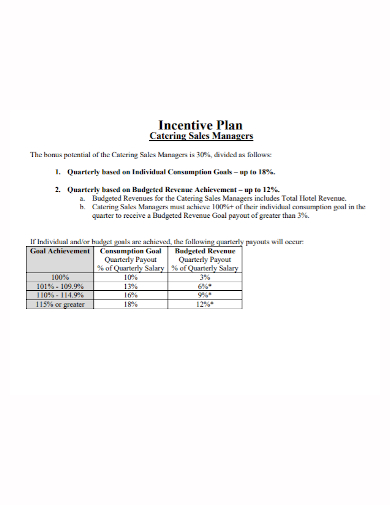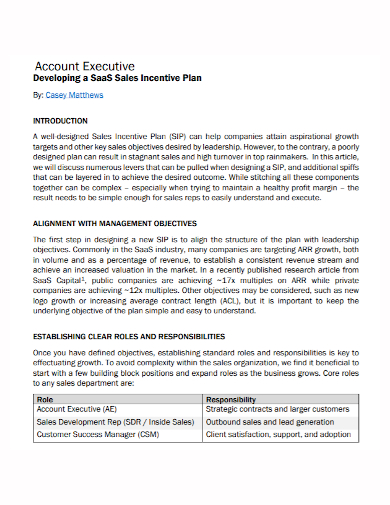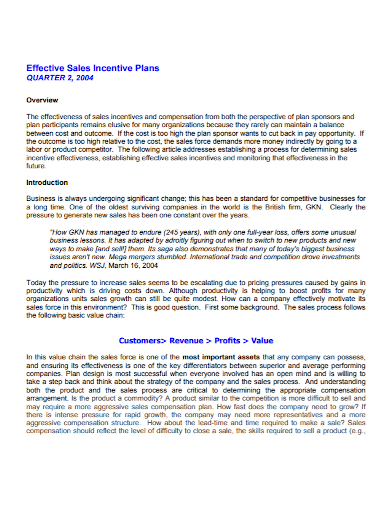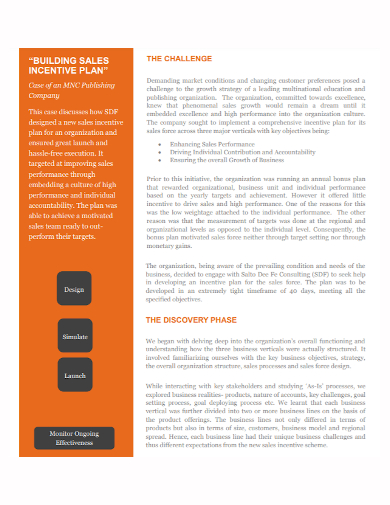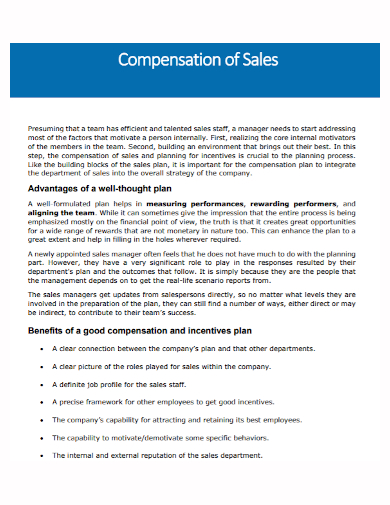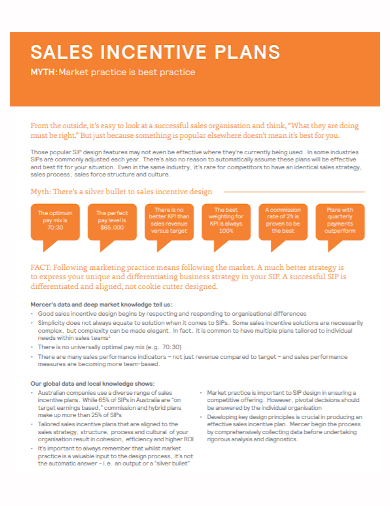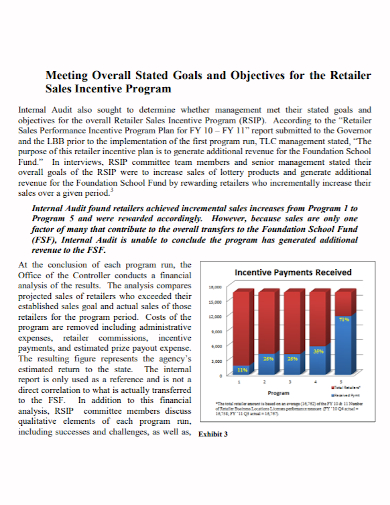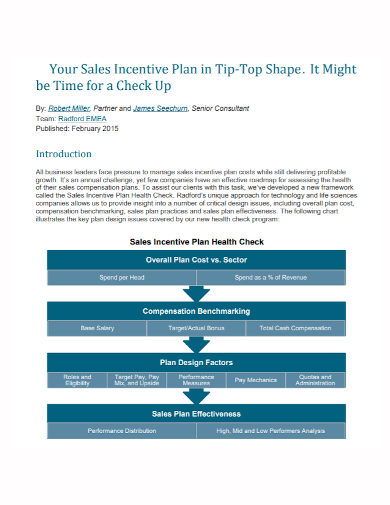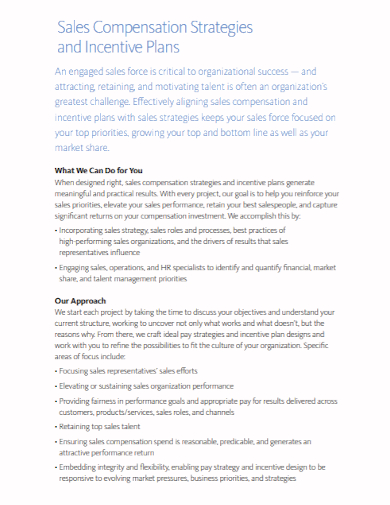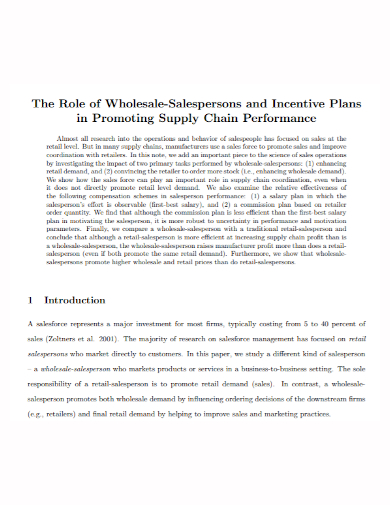Good sales leaders are always on the lookout for new talent who can help their company grow. Still, when it comes to the things that might entice a prospective salesperson, they don’t always nail down the details. It’s worth putting in the effort to develop a strong sales incentive program because it will help you attract and retain A-list sales talent. While creating a plan to motivate sales teams in your company can be daunting, it’s also a way to be kind to your future self. When eager candidates inquire about quotas, sales incentives, what data you use to set goals, and how often your team exceeds those goals, bringing salespeople in for an interview before you’ve figured out exactly how you’ll compensate them for their work puts you in a tongue-tied, unenviable position.
10+ Sales Incentive Plan Samples
Anything that motivates your sales team to make more sales is referred to as a sales incentive. It’s frequently about money, whether it’s a commission based on the value of deals closed or bonuses for meeting specific goals. Non-monetary rewards, such as days off or time off, as well as awards and titles for top performers, can be included. Because you need to motivate sales teams to meet targets, sales incentives are critical. Sale is a difficult job, and employees require incentives to keep them motivated and on the hunt.
1. Sales Incentive Plan Template
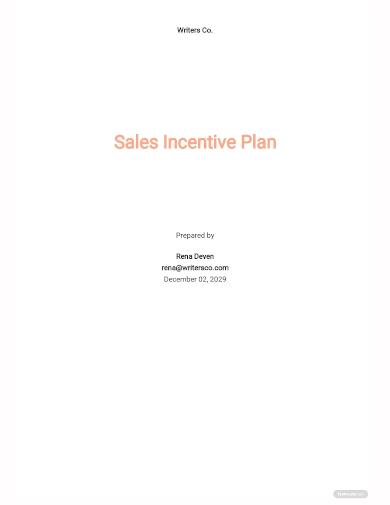
2. Catering Sales Incentive Plan
3. Sales Account Incentive Plan
4. Quarterly Sales Incentive Plan
5. Building Sales Incentive Plan
6. Compensation Sales Incentive Plan
7. Market Sales Incentive Plan
8. Sales Incentive Program Plan
9. Sales Incentive Health Plan
10. Sales Strategy Incentive Plan
11. Sales Supply Chain Incentive Plan
Creating Sales Incentive Plan
- Quotas and targets – Individual quotas or targets are the most popular and traditional incentives. These will always be a significant part of sales compensation because they are required to ensure that sales reps are able to cover their own expenses. As previously stated, these must be handled with caution because it is all too easy for them to become a blunt instrument, encouraging employees to game the system, refuse to collaborate, and hoard the best clients.
- Bonuses – It’s becoming increasingly difficult for a single person to close a deal as sales have become more complex and multi-faceted. Front-line salespeople rely on data analysts, and large deals may necessitate bringing in entire teams. Team bonuses also encourage cooperation among salespeople, who know that if they all work together, they have a better chance of landing the job. The trick is to structure compensation in such a way that both individual effort and teamwork are rewarded.
- Pre-sale incentive – Traditionally, sales bonuses were paid when a deal closed, but in today’s sales cycle, more deals are taking over a year to close. Many companies offer pre-sales incentives for closing out specific stages of larger deals to motivate their sales teams over long periods of time.
- Action incentives – In the past, success has been rewarded in the sales industry. Success, on the other hand, is a fickle creature. When a customer walks away due to a last-minute change of circumstances, a rep can do everything right and still get nothing.
- Career progression – Sales incentives aren’t just for keeping reps motivated on a daily basis. You’ll also need a sense of progress in order to keep good employees. Progression is a major motivator for any employee. Everyone wants to know that if they do good work, they will be offered a better job sooner or later. As a result, one simple and often overlooked way to motivate employees is to lay out a clear career ladder so they can see how their lives will improve if they stay with your company.
- Training programs – When it comes to motivating employees, training programs are a win-win situation. They gain the benefit of learning new skills, and you gain employees who are more knowledgeable about their jobs. You can kill several birds with one stone if you can turn training programs into something that employees aspire to be a part of – a recognition that it means they’re on the fast track.
FAQs
What is the importance of sales incentive programs?
A high-performing sales team is critical to a company’s success, as successful businesses understand. Sales incentive programs can boost sales by up to 44% while also motivating employees by recognizing and appreciating their contributions.
What is sales incentive compensation?
It’s all about striking the right balance when it comes to sales compensation. Your incentives must motivate reps and drive the right sales behaviors, but they must also be designed in a way that allows you to meet your revenue and growth targets while also driving profitability. And, since the pandemic, getting your planning right has become even more important.
Every business is different, so incentives will differ based on your company’s structure, product and service offerings, and industry. These sales incentive plan templates will provide you with a solid foundation on which to build a successful team.
Related Posts
FREE 7+ Fashion Business Plan Samples in PDF
FREE 10+ Sprint Planning Samples In MS Word | Google Docs | PDF
FREE 10+ Wedding Planning Samples in MS Word | Apple Pages | Powerpoint | PDF
FREE 9+ Monthly Study Planner Samples in PSD | Illustrator | InDesign | PDF
FREE 9+ Sample Curriculum Planning Templates in PDF | MS Word
FREE 10+ Teacher Development Plan Samples in MS Word | Google Docs | Apple Pages | PDF
FREE 10+ Basketball Practice Plan Samples in PDF
FREE 12+ School Business Plan Samples in PDF | MS Word | Apple Pages | Google Docs
FREE 7+ Client Strategic Plan Samples in PDF | MS Word
FREE 11+ Trucking Business Plan Templates in PDF | MS Word | Google Docs | Pages
FREE 7+ Small Hotel Business Plan Samples PDF | MS Word | Apple Pages | Google Docs
FREE 14+ Bakery Business Plans in MS Word | PDF | Google Docs | Pages
FREE 4+ Yearly Lesson Plan Samples in PDF
FREE 50+ Strategic Planning Samples in Google Docs | Pages | PDF | MS Word
FREE 10+ Construction Project Plan Samples in MS Word | Google Docs | Apple Pages | PDF

